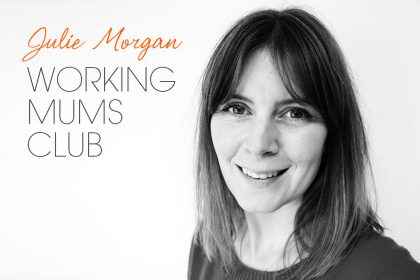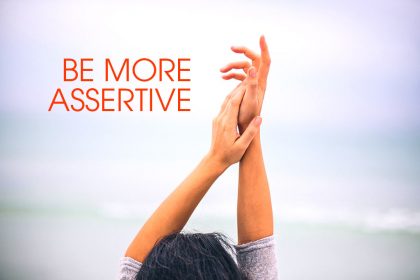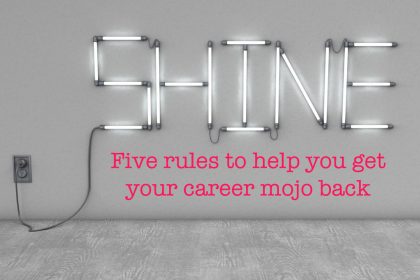How to find the perfect coach for you
It’s great to be your own boss and not have to be answerable to anyone. When you’re fired up, doing what you love and getting paid for it, there’s no doubt that self-employment is the best career choice in the world.
Yet when your self-imposed deadlines whizz by unmet, you have that persistent nag of knowing you should be out there selling yourself but you’d really rather stay behind a screen, or you’re really not sure of your next move, having a boss to hold you accountable and to challenge you can seem appealing again.
How a coach can help you
A coach differs from a boss in that they follow only your agenda (that’s your real agenda, which they will remind you of on the days when you feel as though your agenda should include the sofa, Jeremy Kyle and a tub of Ben & Jerry’s). A good coach empowers rather than instructs and, chosen well, plays the role that you need them to play (whether that’s gently supportive or all-out ass-kicking) for as long as you need them to play it.
But how do you know that coaching is right for you, how do you find the right coach, and what should you expect from the process? Coach Claire Bradford shares her guide to finding the perfect coach for you.
Decide what you want or need from a coach
First of all, you need to be clear about the kind of help you want. If the answer isn’t immediately apparent, try working backwards: imagine yourself in six months’ time, having successfully worked on the challenges you find yourself up against right now. What would be different? What results would you have that you could point to?
You might realise from this exercise that investing in some training in a certain area would be more useful to you, or perhaps hiring a mentor to walk you through the steps they took is what you need the most.
If you aren’t sure whether a coach could help you (or you still don’t feel sure about the exact nature of the problem), it’s worth talking things through with a coach anyway, as they will be able to point you in the right direction to get the most appropriate support for you. You can read a useful description of what coaching actually is and how it works here.
How to start looking for the right coach
Finding a coach is not difficult – there are an awful lot out there with many different approaches! – but finding the right coach for you can be harder. Before you start your search, have an idea of things like:
- What kind of help you need.
- The style of support that you want.
- Whether you’re happy to meet over the phone, on Skype, or prefer face to face.
- How much time and money you can reasonably afford to spend on the process.
Start your longlist by asking around for recommendations. You may also find that people tell you who to avoid! Magazines often feature advice or comments from life and business coaches, so make a note of those whose advice you warm to. Google coaches in your area, if you would prefer to meet them face to face, or consider searching by specialism if geography is not so important.
Many coaches now have a ‘niche’, but almost all coaching (executive coaching, time management coaching, parent coaching…) comes back to the basics – getting your balance right and building on that – so don’t immediately be put off if someone who has been recommended to you advertises a niche that doesn’t fit your challenges.
What to look out for in your search
Once you have a few names on your list, visit their websites and trust your gut instinct to help you cross a few off. Make sure that those who remain have good, recent testimonials, and maybe check out their training and whether they are affiliated with any of the (many) coaching organisations. Bear in mind however, that trust and a good rapport with your coach is more important than qualifications or fame.
The majority of coaches offer some sort of consultation session, and it is a good idea to contact a few to arrange one of these. These sessions will give you the opportunity to tell the coach more about your situation, ask any questions that you may have and get a feel for the chemistry between you.
It is also a chance for the coach to find out about you and to discern whether he or she is the right fit for you, or whether you would benefit more from one of their contacts.
What questions to ask a potential coach
Some good questions to ask in your consultation session:
- Having told you my situation, do you think you are the right coach for me? If not, ask them to recommend somebody else or a different avenue for you to explore.
- How long do you think we will need to work together on this? Most coaches will be able to give you an idea, even if not an exact number of sessions, and you should never feel tied in indefinitely. Three months is usually the minimum amount of time to make a sustainable difference.
- How often would our sessions be, ideally? You will need to keep up momentum, but also have time to make changes – a good average is fortnightly.
- How much do you charge, and does your price include any contact between sessions? Expect to pay anything from £40-£200+ per session, with the ‘norm’ being around £60. Many coaches offer text, email or short call contact between sessions to report back on how things are going too.
- What about confidentiality? Many coaches provide a contract, ensuring complete confidentiality.
- How would you react if we were working together and you sensed I was making excuses? A good coach will spot excuse-making and challenge you to take responsibility for your choices.
Make your choice and start working!
When you have spoken to your shortlist of coaches, always go with the one your instinct tells you is right. Oh, and let the others know of course!
During your work with your coach, keep a record of the changes you make and their results, how you are feeling about yourself and the areas you are working on, and turn up to each session with a summary of how the intervening time has gone for you, knowing what you would like to focus on this time.
Make the most of your coaching and own it. If you are unhappy about any aspect of your coaching relationship, talk it over with your coach straight away – they are there to provide you with just the right support for you to achieve your goals and it is important you get it right together.
Taking the time to find the exact fit of coach for you will save you time, money and frustration as well as providing you with your own personal cheerleader. Might it be time?
By Claire Bradford of Straightforward Coaching.










